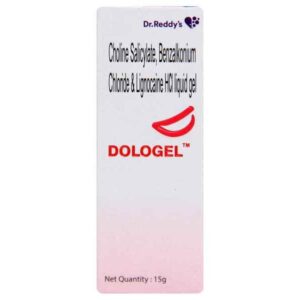LIGNOCAINE + CHOLINE + BENZALKONIUM
Lignocaine: Lignocaine, also known as Lidocaine, is a local anaesthetic medication commonly used to numb tissues in a specific area before surgeries, dental procedures, or medical examinations. It belongs to the class of drugs called amide local anaesthetics.
The primary mechanism of action of lignocaine involves blocking nerve signals in a specific area, thereby temporarily numbing the region and reducing pain and discomfort. It works by stabilizing the neuronal membrane and inhibiting the flow of sodium ions, which prevents the generation and conduction of nerve impulses.
Lignocaine is available in various forms, including injectable solution, gel, ointment, or patch. The exact dosage and administration method may vary depending on the procedure being performed, the patient’s age and weight, medical condition, and the desired depth and duration of anaesthesia. It is usually administered by healthcare professionals.
Some common side effects of lignocaine may include:
1. Temporary redness, swelling, or numbness at the site of administration.
2. Skin rash or irritation.
3. Dizziness or lightheadedness.
4. Nausea or vomiting.
5. Headache.
6. Muscle twitching or tremors.
7. Changes in heart rate or blood pressure (less common).
Serious side effects are rare but can occur with excessive doses or if lignocaine is inadvertently injected into a blood vessel. They may include allergic reactions, seizures, heart rhythm disturbances, and difficulty breathing. It is crucial to seek immediate medical attention if any severe side effects occur.
Although lignocaine is generally considered safe when used appropriately, it is essential to follow the recommended dosage and guidelines provided by healthcare professionals. Individuals with a history of allergies to local anaesthetics or related medications should inform their healthcare provider before using lignocaine.
Choline: Drug Name: Choline
Use: Choline is a water-soluble nutrient that is essential for the function of cells in the body. It is primarily used as a dietary supplement to improve cognitive function, memory, and to promote liver health.
Mechanism of Action: Choline plays a critical role in the synthesis of acetylcholine, a neurotransmitter involved in memory and learning. It also acts as a precursor for the synthesis of phosphatidylcholine, a major component of cell membranes. Choline is involved in various metabolic processes, including lipid transport and metabolism, and it is necessary for normal liver function.
Dose: The recommended daily intake of choline varies depending on age and gender. For adults, the recommended daily intake is 425-550 mg/day for women and 550-675 mg/day for men. Higher doses may be required for certain medical conditions or specific populations.
Side Effects: Choline is generally well-tolerated when taken within the recommended dosage range. However, high doses of choline may cause side effects such as gastrointestinal upset, including diarrhea and nausea. Some individuals may experience a fishy body odor or a “fishy” breath odor when consuming choline supplements, particularly if they have a gene variant that affects choline metabolism. In rare cases, choline supplements can cause low blood pressure, sweating, and salivation.
It is important to note that choline supplements should be used with caution in individuals with certain medical conditions, such as bipolar disorder or epilepsy, as high doses may exacerbate symptoms. It is always recommended to consult with a healthcare professional before starting any new supplement.
Benzalkonium: Benzalkonium is a quaternary ammonium compound that is commonly used as an antiseptic and disinfectant. It is primarily used for topical application on the skin or mucous membranes to prevent infection.
The drug works by disrupting the cell membranes of bacteria, fungi, and viruses, resulting in their destruction. It also has some detergent properties, which helps in the removal of dirt and debris from the skin.
Benzalkonium is available in various formulations, including creams, gels, and solutions. The appropriate dose and application method can vary depending on the specific product and the target area of use. It is important to follow the instructions provided by the healthcare professional or product labeling for the correct usage.
Common side effects of Benzalkonium include skin irritation, redness, and itching. It may also cause allergic reactions in some individuals. In rare cases, prolonged or excessive use of Benzalkonium can lead to skin dryness, cracking, or other skin problems. It is recommended to discontinue the use and consult a healthcare professional if any severe or persistent side effects occur.


